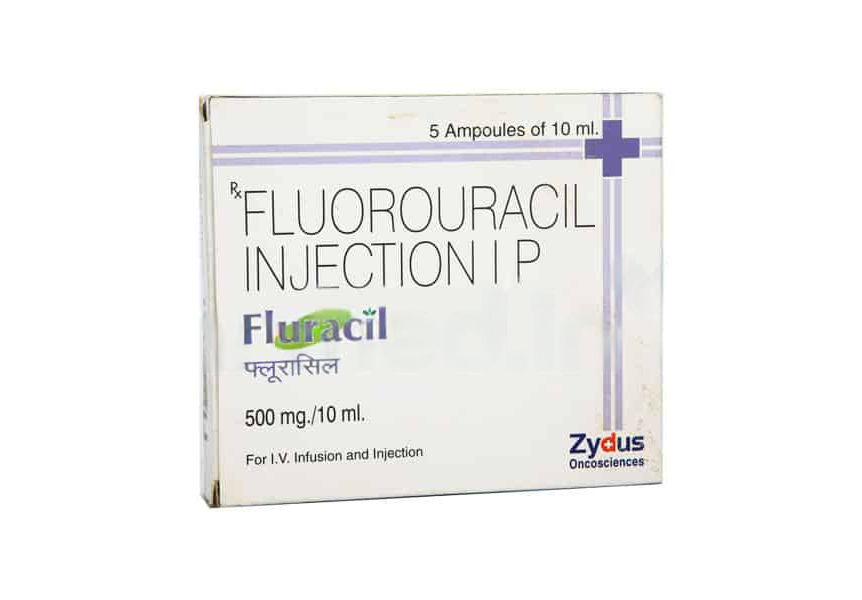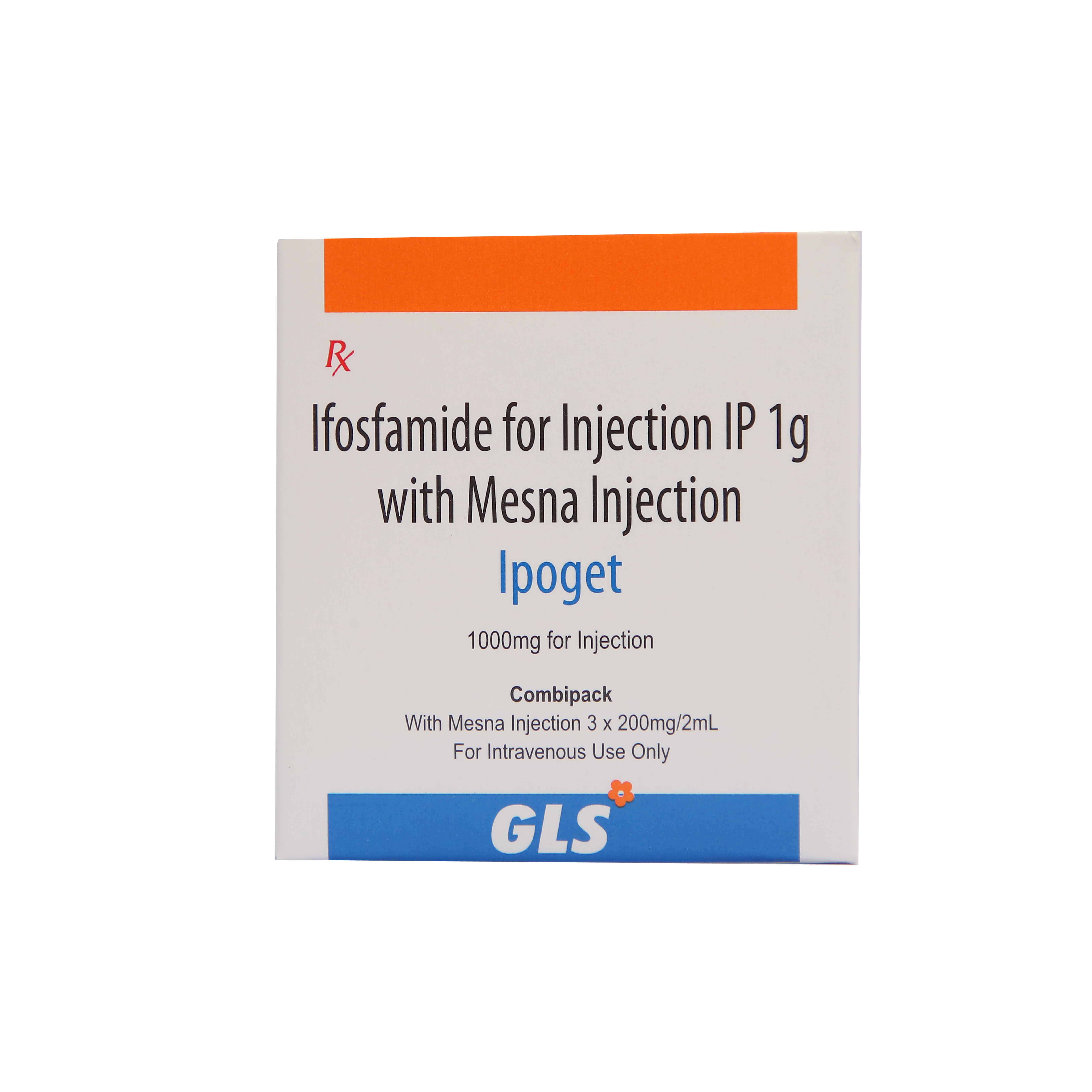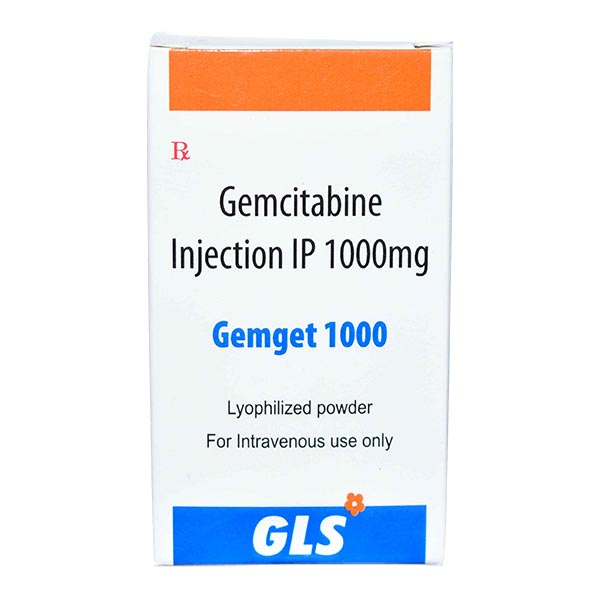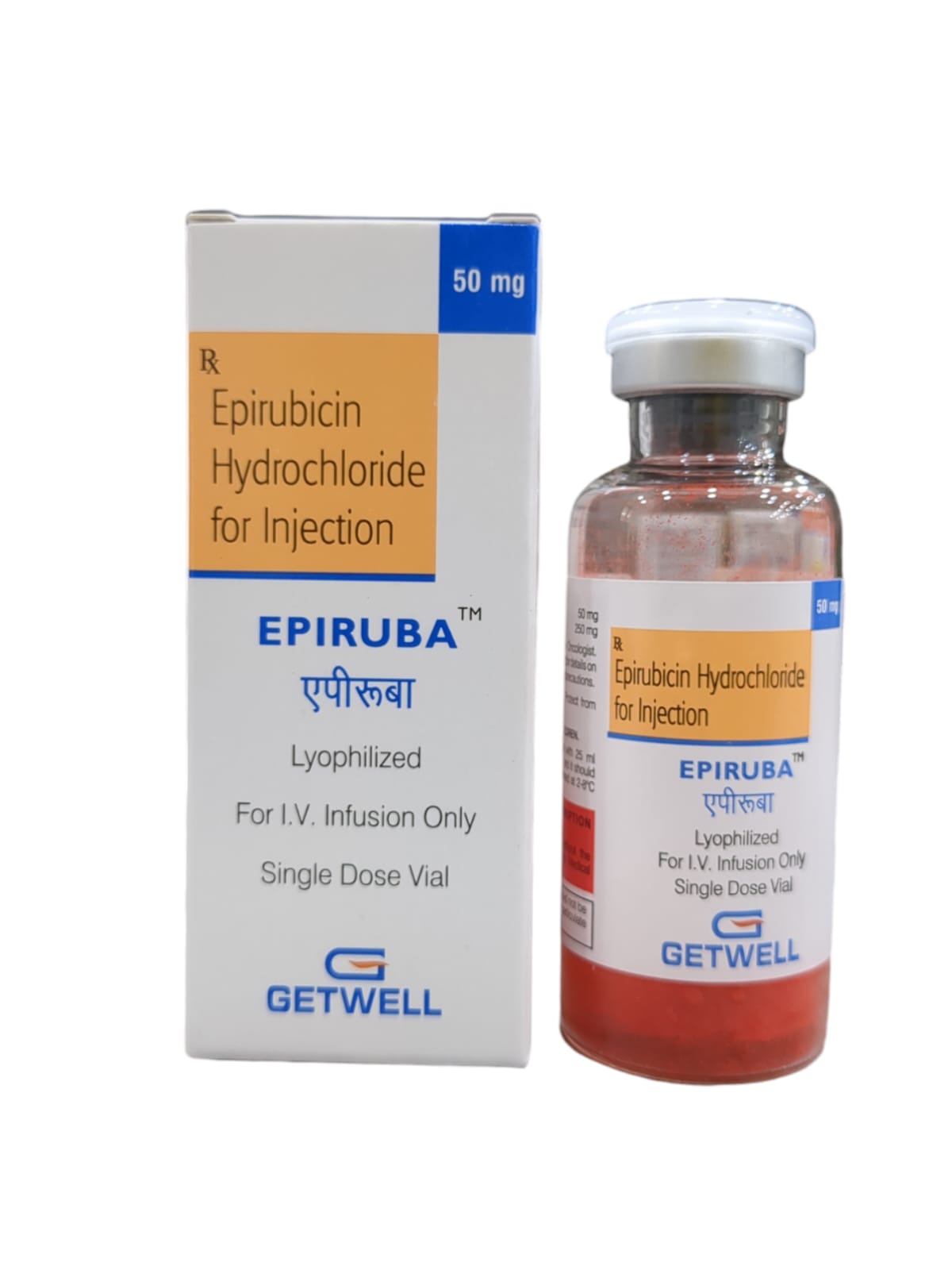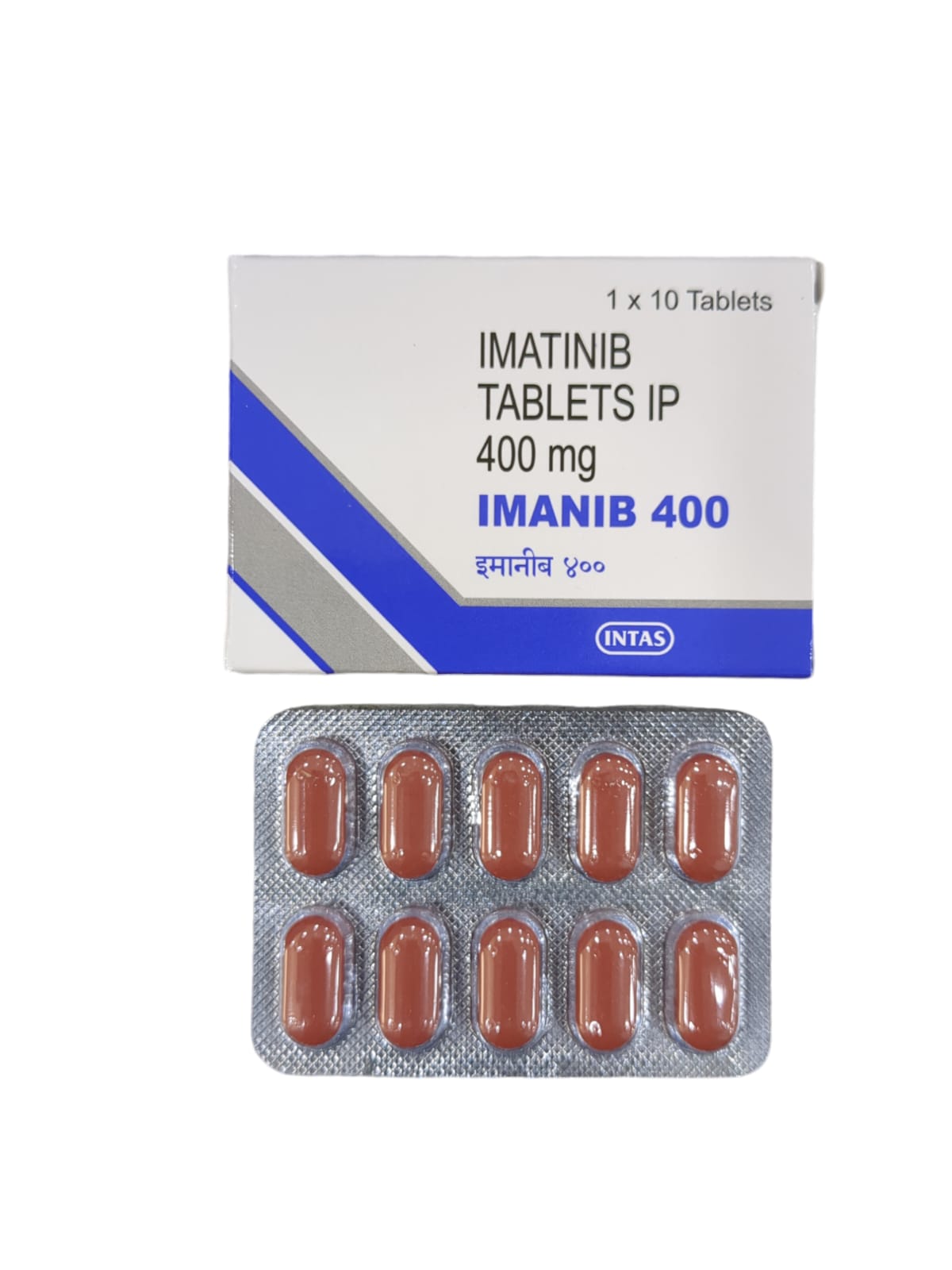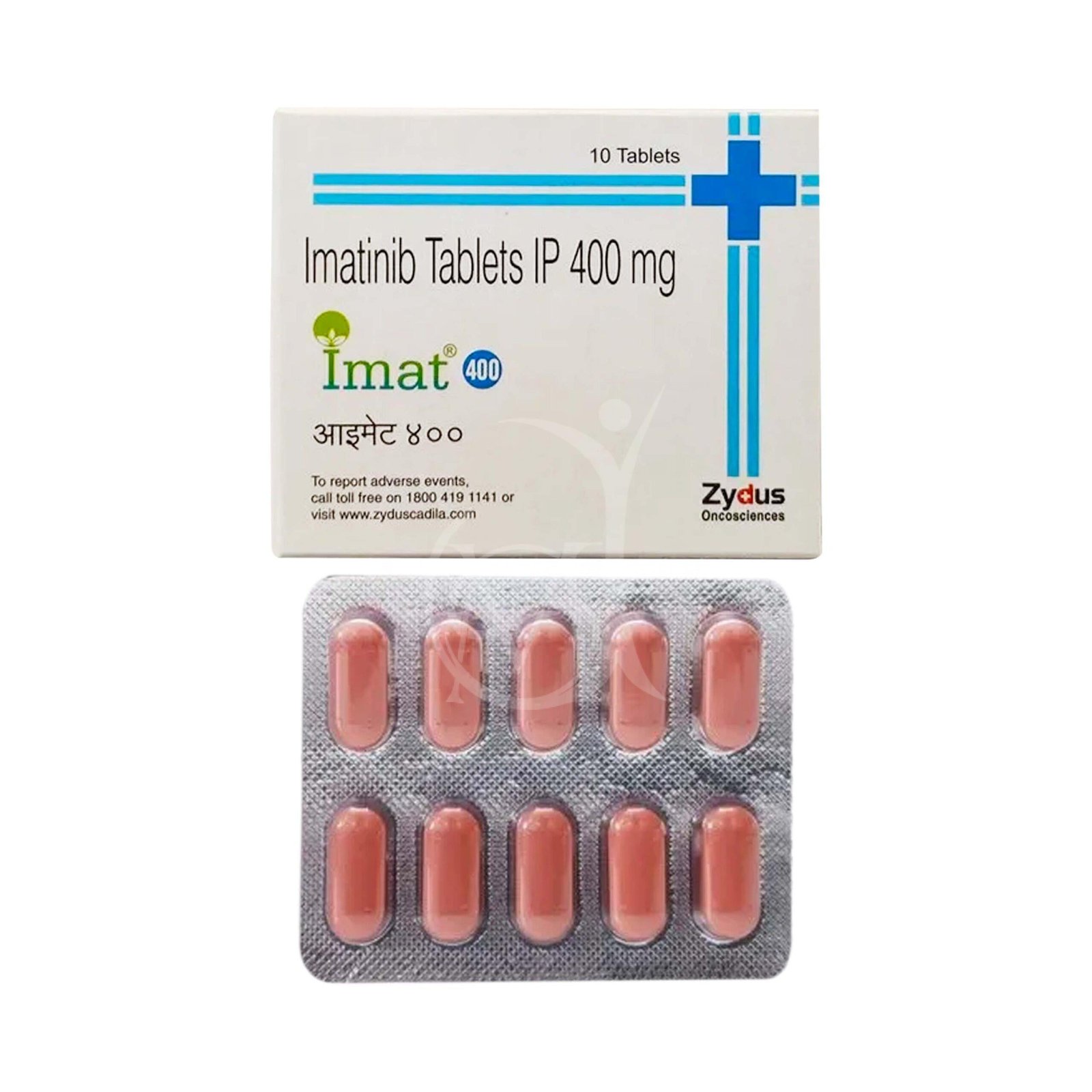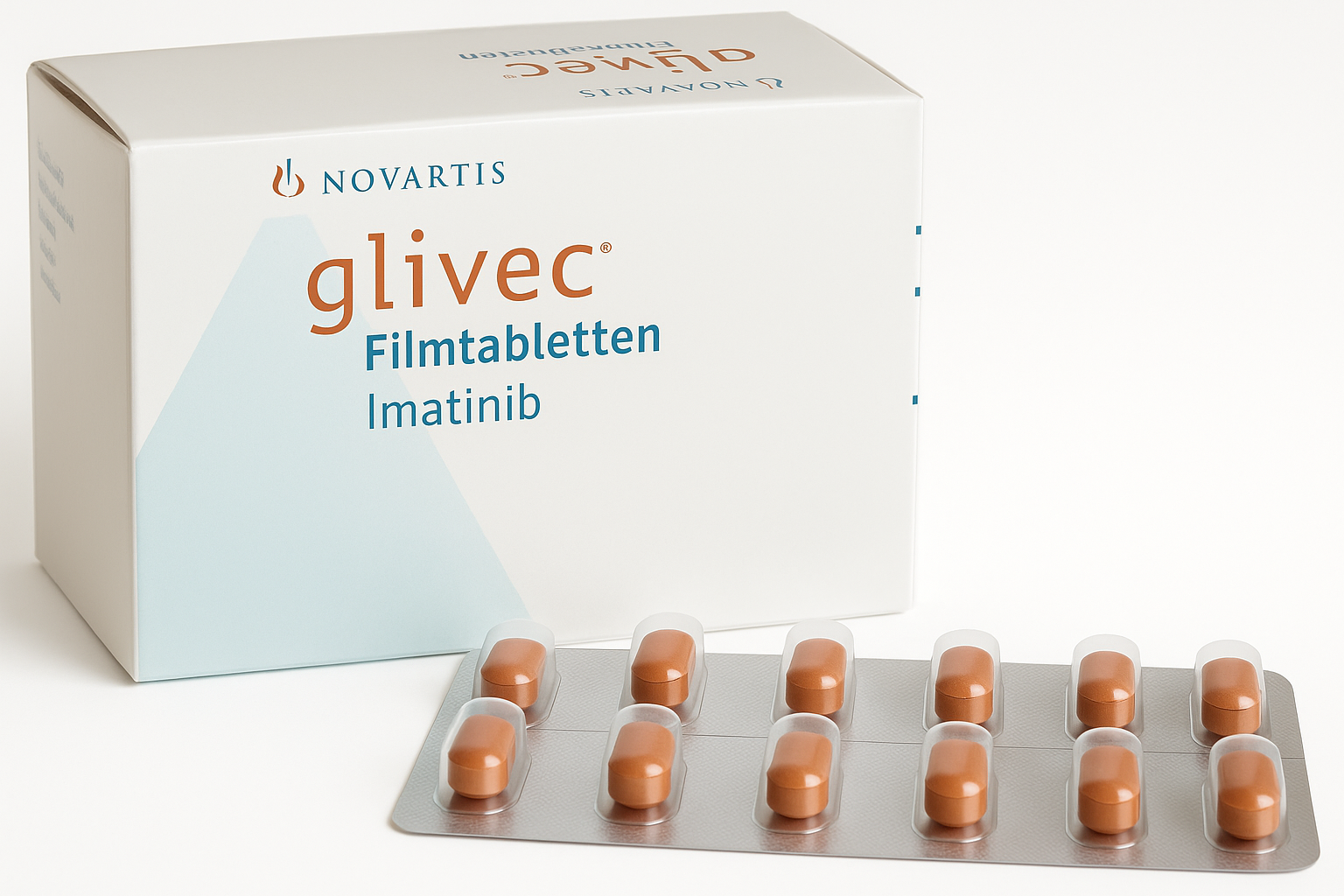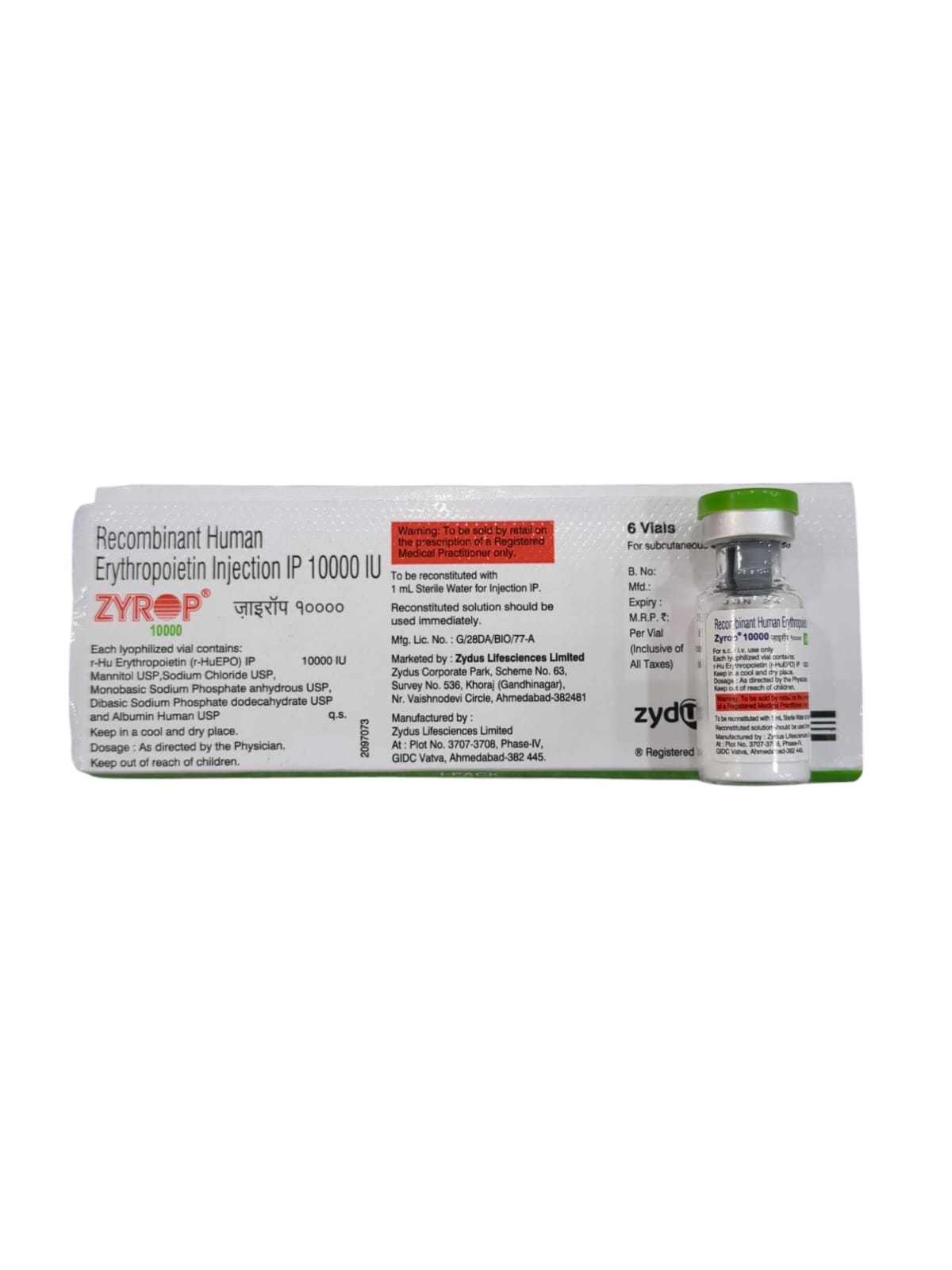Fluracil 500mg Injection contains the active ingredient as Fluorouracil. It belongs to a class of drugs called antimetabolites, which interfere with the genetic material (DNA and RNA) synthesis of rapidly dividing cancer cells, leading to their death. It is commonly used to treat breast, colorectal, stomach, esophagus, and pancreatic cancers. It can be administered in different ways, including through injection or as a cream. Like all other anticancer medication, Fluracil 500mg Injection can cause side effects. Common side effects are nausea, vomiting, diarrhea, mouth sores, hair loss, and an increased risk of infection. However, not all patients will experience these side effects, and the severity of the side effects can vary from person to person. No specific foods need to be avoided when receiving Fluracil 500mg Injection, but alcohol, spicy or acidic foods, citrus fruits and juices, and high-fiber foods may worsen some side effects, such as nausea, vomiting, mouth sores, and gastrointestinal problems. Patients should consider avoiding or limiting these foods during treatment. Inform your physician before starting this treatment if you have undergone surgery in the last 30 days or are following a controlled sodium diet.
Send Message